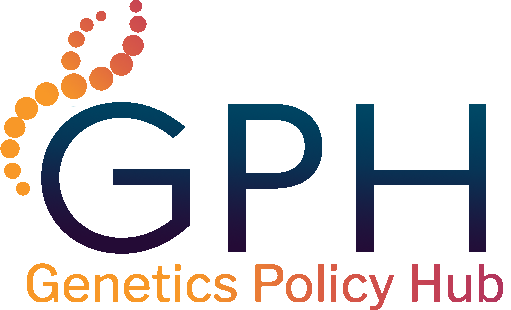From 2004 to 2024, the Health Resources and Services Administration (HRSA) funded the National Coordinating Center for the Regional Genetics Networks (NCC). NCC developed and maintained the Genetics Policy Hub.
With the conclusion of NCC funding, the Genetics Policy Hub (GPH) will no longer be updated or maintained. Information on GPH should be used for historical reference only.
Gene Patents
Updated On Sep 19, 2024
This information is meant to be used for educational purposes to inform providers, patients, and genetic service delivery stakeholders about genetics policy topics. Sharing of information, resources, or policy statements is no way an endorsement of stated positions by NCC.
Introduction
Gene patents are awarded by governments and give specific individuals, organizations, or corporations the exclusive right to a specific sequence of DNA (a gene). The holder of the patent can then dictate how the gene can be used for clinical genetic testing and research.
In the United States, more than 4,300 human genes have been patented. However, on June 13, 2013, the Supreme Court of the United States ruled in the Association for Molecular Pathology v. Myriad Genetics, Inc, that human genes cannot be patented because DNA is a “product of nature.” All gene patents were invalidated with this ruling. However, the ruling did not prohibit the patenting of DNA that is manipulated (i.e., no longer a product of nature) or processes for identifying DNA sequences.
The debate over gene patents did not end with the 2013 court case. Some have proposed legislation which would effectively lift the ban on gene patenting. For more information on the proposed legislation, please see Science’s article “Controversial U.S. bill would lift Supreme Court ban on patenting human genes.” An in-depth discussion of “Intellectual Property in Genomics,” can also be found on the National Human Genome Research Institute (NHGRI) website.
Summary of arguments for and against gene patenting:
- In Favor: Some feel that restricting the ability to patent genes inhibits genetic research, and thus harms patients. If companies cannot patent genes (and thus make money from their research), it doesn’t encourage companies to do research that benefits patients.
- Against: Others feel that patenting genes harms patients by restricting companies’ ability to work with patented genes. When genes are not patented, it increases the competition among companies, which produces better information for patients.
Legislation and Regulation
The U.S. Supreme Court invalidated patents on the BRCA1 and BRCA2 genes in its 2013 decision in Association for Molecular Pathology v. Myriad Genetics, which can be read here. No federal legislation has been passed since that ruling.
Are you interested in learning what your state’s government or the federal government are currently proposing for either legislation or regulation? Check out Legislative/Tracking system for up-to-date information and subscribe to our Twitter channel to get the latest updates in your pocket.
Policy Positions
Organizations working within the genetics community (national genetic organizations, advocacy organizations, etc.) have published positions on gene patents. Explore these position statements below.

